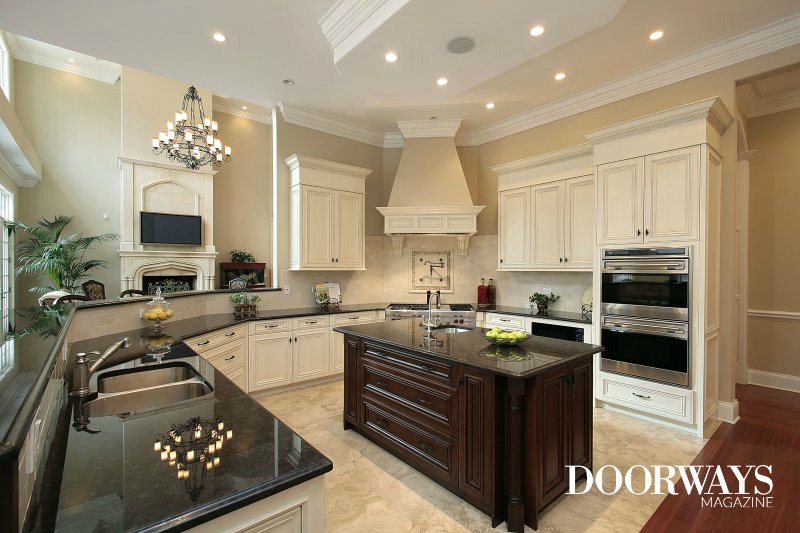Mon, Nov 12, 2018
Article may contain affiliate links. As an Amazon Associate I earn from qualifying purchases.

When you know more about the types of kitchen and bathroom countertops available, you can make better choices when it comes to remodeling your home. While there are many different options available, this article focuses on two very common types that work well in bathrooms and kitchens: Corian and Granite.
Corian is a type of durable plastic that is quickly growing in popularity. Not all plastics are good as countertops, but Corian is a different kind, more suitable for this purpose. It is a type of solid-surface countertop.
Granite is a material that has been used for countertops for many years, and is a natural stone known for its various strong characteristics. You can decide which of the two is more suitable for your home by considering their pros and cons.
Corian Countertops Pros and Cons
Solid surface counters, like Corian, do not stain because they are non-porous. They are water-resistant, easy to clean, and also easy to repair. They can be somewhat susceptible to dents and scratches, but when sanded out, they look as new once again.
Corian is a type of material that can be shaped, cut, carved or sanded in any way, and this makes it fully customizable. In terms of appearance, Corian has several advantages as well. When glued together correctly and then sanded, the different sections appear seamless (as one), and it comes in a fantastic range of colors and patterns.
The fact that Corian is not heat-resistant is probably its main disadvantage. Also, the fact that it can scratch and dent, and that it is not a natural material, can be off-putting to some as well.
Granite Countertops Pros and Cons
Granite is an incredibly tough material that is exceptionally pleasing to the eye, especially if you want a modern, timeless and high-quality look in your kitchen or bathroom. It is a hard substance that is highly resistant to scratches, bumps and dents, and because it is extremely resistant to heat it is a wonderful material to use nearby a stove or cooktop.
Granite countertops do, however, need to be properly sealed, because it a porous stone material that will absorb fluids and stain. This is one disadvantage of granite – it requires some maintenance. It is also a material that only offers about twenty color variations, although countertops of the same color will appear unique because of granite’s natural hues, shading and textures.
Cost Comparison: Corian vs Granite Countertops
A Corian countertop will set you back between $45 and $68 per square foot, which is quite a bit lower than many other materials commonly used. The color chosen often determines the price, and you may find that you are required by the manufacturer to have the final product approved by a professional fabricator. This takes away some of your control when it comes to pricing. However, you will very likely benefit from a ten-year warranty on the product and installation.
Granite countertops range from $100 to $250 per square foot. Their price depends on the grade of material, of which there are typically four available. Lower prices can be found for builder or clearance grades that are often plainer in color.
When choosing countertop materials keep in mind their advantages and disadvantages. Remember that granite is more expensive but heat and scratch-resistant, while Corian is less expensive but susceptible to scratches and burns.
In terms of maintenance, Corian can always be sanded down and repaired, and granite may need re-sealing every few years. Your desired color and overall look may well affect the material you choose; granite has only about twenty color variations, but is incredibly smart and unique, while Corian has a greater variety of color and pattern options.
READ NEXT
